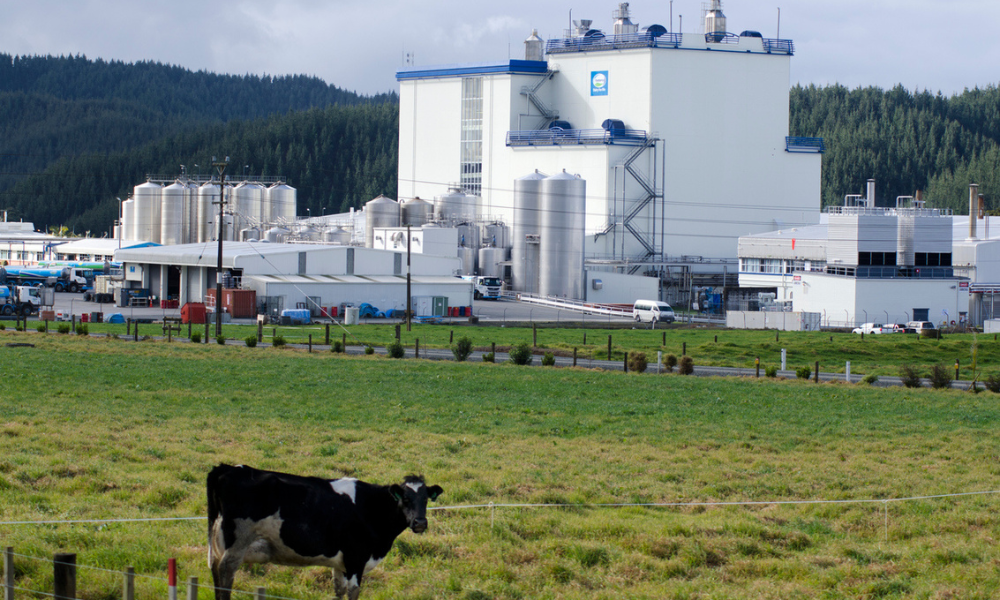Fonterra boss sought a pay cut, but instead nearly doubled his earnings
.jpg)
How would you like to grow your compensation by 78.5% in a year?
Fonterra chief executive Theo Spierings was paid $8.32 million in 2017, the company disclosed, making him the highest-paid chief executive of any listed company or fund in New Zealand.
Long-term incentives of $3.85 million comprised 46% of Spierings’ pay. Base salary of $2.46 million accounted for 30% and short-term incentives made up 22% of the package. Benefits accounted for 2%.
This is the first time that Fonterra has broken down his pay.
Two years ago, Spierings sought a freeze in his basic salary because of 750 job cuts. He remained eligible, however, for bonuses. At the time, he was earning $5 million.
Spierings’ 2017 pay equates to $160,000 a week while average weekly earnings for full-time wage earners are at $1,094, after an increase of 3.1%, according to data from Statistics New Zealand.
The numbers naturally gave rise to questions.
Federated Farmers vice-president Andrew Hoggard, wanted to know to know what Spierings' counterparts in leading international dairy companies made this year, and what the performance measures were.
"If it's on the fact the milk price has gone up, that's the wrong measure, because he's got zero control over that, but if it's based on moving milk into higher value products, increased profitability, reduced costs, then he's obviously earned it," Hoggard said.
But Chris Lewis, dairy industry group chairman and national board member for Federated Farmers, defended Spierings’ pay by saying it was based on performance incentives.
Lewis said the value-add side of the business had gone very well and part of Spierings’ pay would be linked to that.
He earlier said if Spierings was worth every bit of his pay the farmers would not complain, and that if any farmer or supplier had a problem, then they should ask the board.
Fonterra Chairman John Wilson acknowledged that the subject of executive remuneration would undoubtedly cause comment.
They are big numbers, he agreed, as he pointed out that while base salaries had remained largely unchanged, some far reaching targets under its so called "velocity" programme had been met.
This year, for instance, Fonterra announced a 52% increase in payout for its farmer shareholders. Revenue was up 12% to $19.2 billion.
Net profit after tax, however, was down 11% to $745 million because of reduced margins across the business.
Wilson said that while the 2016/2017 remuneration were based on velocity-delivered initiatives, Fonterra would be returning to a more traditional incentive programme, linked to return on capital, earnings per share metrics, and aligned to farmer returns.
Related stories:
Fonterra CEO requests salary freeze
Revealed: New Zealand’s top CEO salaries
Fonterra chief executive Theo Spierings was paid $8.32 million in 2017, the company disclosed, making him the highest-paid chief executive of any listed company or fund in New Zealand.
Long-term incentives of $3.85 million comprised 46% of Spierings’ pay. Base salary of $2.46 million accounted for 30% and short-term incentives made up 22% of the package. Benefits accounted for 2%.
This is the first time that Fonterra has broken down his pay.
Two years ago, Spierings sought a freeze in his basic salary because of 750 job cuts. He remained eligible, however, for bonuses. At the time, he was earning $5 million.
Spierings’ 2017 pay equates to $160,000 a week while average weekly earnings for full-time wage earners are at $1,094, after an increase of 3.1%, according to data from Statistics New Zealand.
The numbers naturally gave rise to questions.
Federated Farmers vice-president Andrew Hoggard, wanted to know to know what Spierings' counterparts in leading international dairy companies made this year, and what the performance measures were.
"If it's on the fact the milk price has gone up, that's the wrong measure, because he's got zero control over that, but if it's based on moving milk into higher value products, increased profitability, reduced costs, then he's obviously earned it," Hoggard said.
But Chris Lewis, dairy industry group chairman and national board member for Federated Farmers, defended Spierings’ pay by saying it was based on performance incentives.
Lewis said the value-add side of the business had gone very well and part of Spierings’ pay would be linked to that.
He earlier said if Spierings was worth every bit of his pay the farmers would not complain, and that if any farmer or supplier had a problem, then they should ask the board.
Fonterra Chairman John Wilson acknowledged that the subject of executive remuneration would undoubtedly cause comment.
They are big numbers, he agreed, as he pointed out that while base salaries had remained largely unchanged, some far reaching targets under its so called "velocity" programme had been met.
This year, for instance, Fonterra announced a 52% increase in payout for its farmer shareholders. Revenue was up 12% to $19.2 billion.
Net profit after tax, however, was down 11% to $745 million because of reduced margins across the business.
Wilson said that while the 2016/2017 remuneration were based on velocity-delivered initiatives, Fonterra would be returning to a more traditional incentive programme, linked to return on capital, earnings per share metrics, and aligned to farmer returns.
Related stories:
Fonterra CEO requests salary freeze
Revealed: New Zealand’s top CEO salaries





